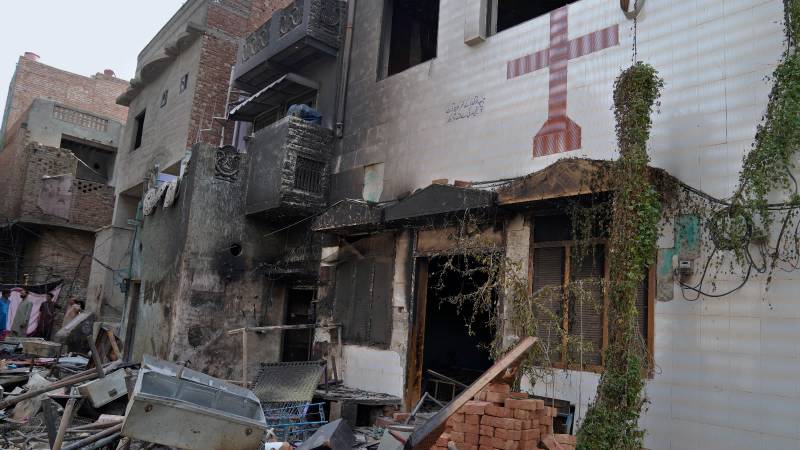
On Monday, 7th of August 2023, the National Assembly of Pakistan passed a crucial bill that paved the way for establishing the National Commission for Minorities. This significant step underscores the nation's commitment to safeguarding and advancing the rights and interests of non-Muslim communities in alignment with both Pakistan's constitutional principles and international accords.
This forthcoming commission will be endowed with considerable administrative and financial autonomy. Its overarching mandate encompasses a range of pivotal functions, including the assessment and vigilant oversight of the enforcement of constitutional safeguards about minority rights. Furthermore, the commission will review existing policies, propose necessary amendments to thwart discrimination, and formulate a comprehensive national action plan to empower minority groups.
The commission's composition will be characterized by a total of thirty members. Twelve official members and eighteen non-official members, all of the various religions, will comprise this group. It is noteworthy that the unofficial part will include members of Christian, Hindu, Sikh, Parsi, Kalash, Baha'i, Buddhist, and Muslim affiliations. Notably, at least one-third of women will be among these unofficial members. While the primary headquarters of the commission will be stationed in Islamabad, provision has been made for establishing sub-offices across various regions of Pakistan.
The selection process for the Chairperson and the commission members will be conducted with stringent adherence to specific criteria. These include citizenship, age, unwavering integrity, substantial experience in human rights or minority rights, and an unblemished legal record. Empowered with robust authority, the commission will be able to investigate instances of minority rights violations, extend legal aid to victims, oversee job quotas, ensure the safeguarding of places of worship, and ardently engage in advocacy and awareness initiatives. Collaborative endeavors with governmental entities and various organizations will be actively pursued, aimed at promoting religious tourism and fostering harmonious coexistence among diverse faiths.
At its core, the National Commission for Minorities is poised to be a formidable instrumentality for ensuring the protection, advancement, and holistic development of non-Muslim communities across Pakistan. Its fundamental mission encompasses advocacy for their rights, robustly addressing pertinent concerns, and unswervingly promoting interfaith harmony within the national fabric.
The issue of minority rights and representation has been a subject of considerable concern. As we have seen several attacks on minorities in recent history. In May 2013, Hindu temples in Larkana witnessed mob violence, resulting in desecration and looting. Later, September saw a tragic twin suicide bombing in Peshawar, killing at least 80 Christians, marking it the deadliest attack on the community. That same year, over 150 Christian houses in Joseph Colony were set ablaze due to blasphemy allegations against a local resident, Sawan Masih, which also led to the burning of two churches and dozens of Bibles.
The violence persisted into subsequent years. A Muslim mob in Lahore savagely murdered a Christian couple in 2014, accusing them of desecrating the Holy Quran and then incinerating their bodies. The violence culminated in March 2016, when a suicide bombing in Lahore on Easter Sunday killed 72 people and injured over 300 more, emphasizing Pakistan's poor situation for religious minorities.
A study by the All Pakistan Hindu Rights Movement found that of the 428 Hindu temples in Pakistan, only about 20 remain, with the majority converted for other purposes or neglected by the Evacuee Trust Property Board overseeing them. Following the Babri Masjid demolition, Pakistani Hindus experienced riots, with attacks on numerous temples in Karachi, Sindh, and Quetta. The Jain Mandar in Lahore was destroyed in 1992, with its location subsequently renamed from Jain Mandar Chowk to Babri Masjid Chowk.
On August 16, 2023, in Jaranwala, following blasphemy accusations against a Christian family, Muslim mobs torched at least five churches, vandalized a cemetery, and attacked Christian homes.
Ensuring Equal Representation
The minority bill's fair representation of minority populations in many administration areas is one of its primary goals. This bill supports the idea of reserving seats in legislative bodies to provide minorities a voice in decision-making. By doing so, minority bill will contribute to a more inclusive democracy that reflects the nation's diversity.
Rehab Mahamoor, a researcher at Amnesty International, emphasized to a growing climate of fear and discrimination against religious minorities in Pakistan. Blasphemy laws, which are broad and ambiguous, are frequently used against marginalized groups, putting religious minorities especially vulnerable to vigilante violence.
The minority bill aims to abandon these types of violence against minorities. It is essential to ensure that individuals may practice their faith without fear of discrimination or reprisal in Pakistan, where religious diversity is a distinctive feature. Minority legislation upholds the value of religious liberty by establishing an atmosphere where all citizens are free to practice their religions.
This bill enhances Pakistan's national identity by recognizing and celebrating cultural diversity. Discrimination and hate crimes against minorities are pressing concerns that require effective legal mechanisms for redressal. Minority bill incorporates provisions that explicitly condemn discrimination and hate crimes, conveying that such actions will not be tolerated.
While the need for the minority bill is undeniable, its implementation may face challenges. The advancement of such a measure may be hindered by opposition from some sectors and a lack of understanding regarding the significance of minority rights. Remembering that changing laws by themselves won't alter people's hearts and thoughts is crucial. It is also important to refute the myths of hatred and intolerance that are sometimes used to excuse violence against minorities. As Aasim Sajjad Akhtar writes in his latest piece, Oh Jaranwala, it is crucial to rally our young around political ideals that foster tolerance and understanding since the rise of nasty, right-wing politics threatens us all.
The need for a minority bill in Pakistan cannot be overstated. This bill serves as a beacon of hope, illuminating the path toward a more inclusive, tolerant, and progressive society. By addressing the challenges faced by minority communities and ensuring their equal participation in all aspects of national life, minority bills contribute to the holistic development of Pakistan.

